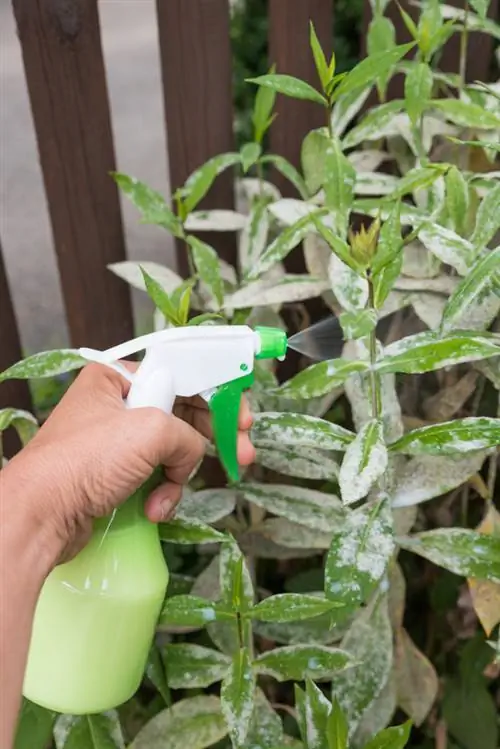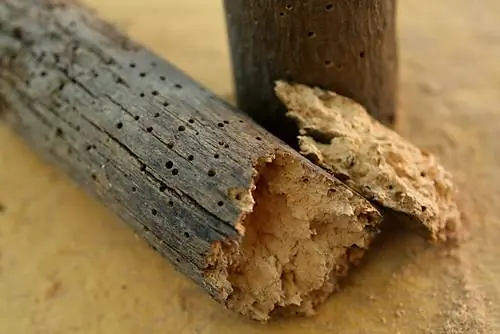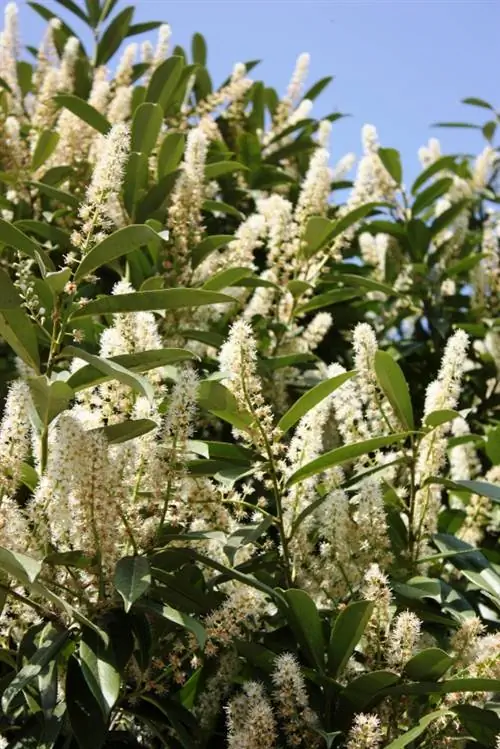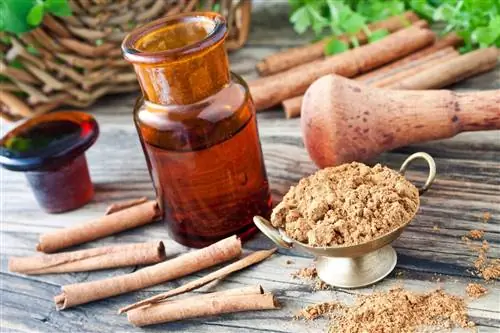- Author admin leonars@hobbygardeners.com.
- Public 2023-12-16 16:46.
- Last modified 2025-01-23 11:21.
Mildew is an aggressive and, above all, stubborn plant pest. If symptoms occur on susceptible plant species, you should act quickly to save them and prevent the fungus from spreading. The easiest way to do this would certainly be with chemical agents. However, given the disadvantages, this method is not particularly recommended. Anyone who knows anything about crop protection knows that plant protection can also be environmentally friendly.
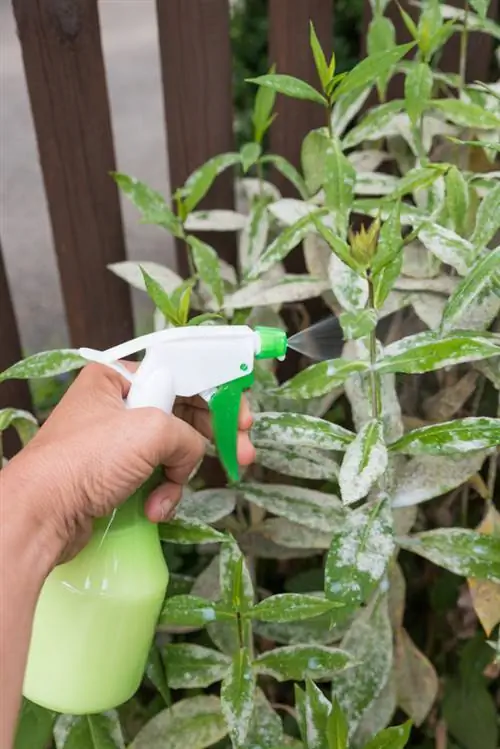
When should you use chemical agents against mildew?
Chemical agents to combat mildew should only be used in exceptional cases when biological alternatives such as fennel extract, lactic acid cultures or home remedies such as milk, baking soda or garlic broth have no effect. Chemical fungicides should be considered as a last resort to prevent the spread of the fungus.
Chemistry in the home garden?
Using chemical agents, they manage to kill mildew with just a few applications. But this benefit is probably the only advantage. The list of consequential damage, however, is much longer:
- Pollutants enter the groundwater
- causing the roots of other plants to burn
- Valuable nutrients are removed from the soil
- own he alth risk upon contact
- expensive purchase
When are chemical agents an option?
Only in exceptional cases is there no way around chemical agents to combat powdery mildew. Unfortunately, some alternatives that you will find below only help against powdery mildew. If none of the biological remedies work, as a last resort you should get a fungicide to prevent the spread of mildew and protect other plants. Before doing so, you should carefully check whether it really is mildew.
Alternative biological agents
Numerous biological agents are now known that have proven to be just as effective. The home remedies mentioned can be easily made yourself, so you can even save money.
Biological pesticides
You can also get fungicides from specialist retailers (€12.00 on Amazon) that do not require any chemicals. To choose a good product, you should pay attention to the composition. Extracts are recommended
- from fennel
- from aniseed
- from knotweed
- from microorganisms
- or from lactic acid cultures
- made of silica
Home remedies
- Planting partners such as basil, chervil. Garlic, chives or foxglove
- Milk or buttermilk
- Soda
- Predators like ladybugs
- Baking powder
- Plant broths made from garlic or horsetail

